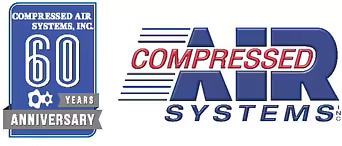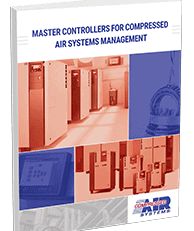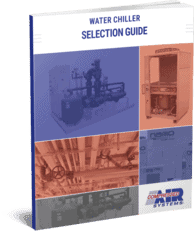Air Compressor Oil Water Separators: A Guide
Since 1963, Compressed Air Systems, Inc. has specialized in providing comprehensive, customized air compressor solutions for industries ranging from medical and pharmaceutical to electronics and aerospace. For your convenience, we have capabilities for in-house design consulting, equipment rentals, installations, and 24/7 maintenance services, with the goal of providing everything you need, be it a new turnkey system or repairs.
Additionally, our extensive equipment offerings include blowers, vacuum systems, nitrogen and process chillers, air compressors, and air compressor oil-water separators. In this case study, learn more about oil-water separators, how they work, and why they’re a vital part of an air compressor system.
What Is an Oil-Water Separator?
An oil-water separator assists in pulling water out of compressed air. As compressed air releases from the compressor’s storage tank, it often contains moisture that then condenses to create droplets of water. The oil-water separator will effectively eliminate the water droplets, which prevents them from building up. This reduces the risk of compressor damage, equipment contamination, and corrosion when utilizing the compressed air. Essentially, oil-water separators effectively extend the life span of your equipment.
Why Is There Water in the Compressor System?
An air compressor inherently captures water when it draws in air saturated with environmental moisture. When the air compresses, that moisture condenses, producing water droplets. Using compressed air that still contains water can degrade your tools and cause operational issues, like diluting paint in paint-spraying projects, for example.
What Is the Best Oil-Water Separator for Air Compressors?
Our air compressor oil-water separators are capable of maintaining as much as 98% efficiency down to half of the rated flow capacity. With varying weights, sizes, and capacities to best fit your individual application, we offer an extensive line of moisture separators and oil-water separators.
How Does an Oil-Water Separator for Air Compressors Work?
Oil-water separators utilize a coalescing principle or centrifugal design to remove condensate from an air compressor. The airflow in coalescing separators moves from inside the filter element to the outside, removing water droplets through the filter cartridge. Centrifugal oil-water separators rely on rotary motion, pushing the air, water, and other particles like dust to accelerate radially outward and through a filter element like polyethylene. This allows the water and other particulates to externally drain and collect in a bowl.
Where Do You Put the Oil-Water Separator on an Air Compressor?
The proper installation location for the oil-water separator is downstream from the compressor on its discharge line, as near as possible to the compressor itself. The separator relies on gravity to drain the water into the compressor tank, so installing it high on the discharge line is ideal and will help prevent condensate from entering the airstream.
How Does a Desiccant Air Dryer Work?”
In addition to moisture separators, desiccant air dryers remove moisture from incoming air to improve compressor air quality. Desiccant air dryers, which are similar in design to water trap filters, rely on dual pressurized tanks and small desiccant beads to absorb water droplets from the air. They switch back and forth between drying and regeneration cycles. Pressurized air moves through the desiccant bead vessel to remove droplets until the air reaches the optimal dew point, at which time it releases. A heating process after that depressurization then eliminates moisture from the beads, and vessel repressurization occurs to prepare for the next drying cycle.
How Do You Dispose of the Condensate/Water From an Air Compressor?
Oil is a lubricant for a compressor’s internal components. Since 1972, the EPA has enforced regulations on air compressor condensate to reduce drinking water pollution. According to the EPA, wastewater from an air compressor should not exceed 40 parts per million of oil. Typical air compressor condensate contains oil at roughly 300 parts per million, so an oil-water separator is necessary to:
- Meet EPA regulations for your facility
- Avoid penalties
- Prevent end-product contamination
- Decrease environmental impact
Air Compressor Oil-Water Separators From Compressed Air Systems
Oil-water separators are important components for air compressors to not only safeguard your system but also to avoid contamination and EPA violations. Compressed Air Systems of Tampa, Florida, is backed by nearly 60 years of experience in delivering high-performance air compressor solutions, and our team is ready to help. For more information, you can contact us directly or read our guide on moisture content in compressed air.









